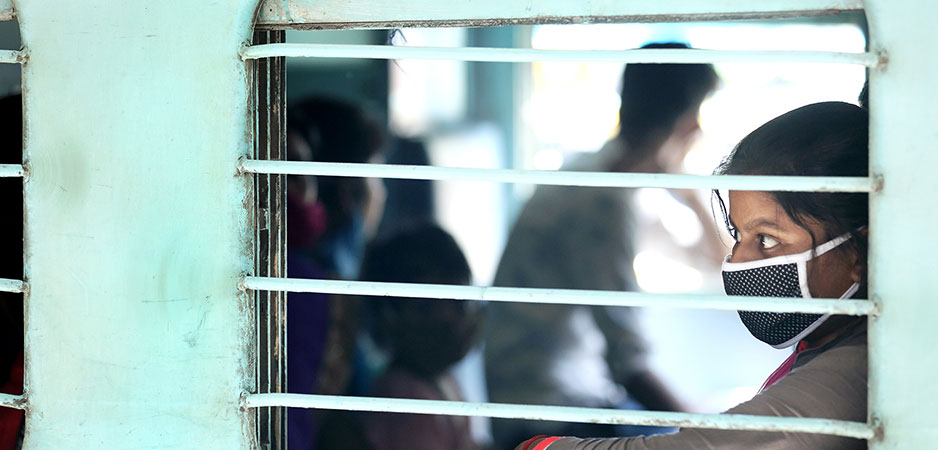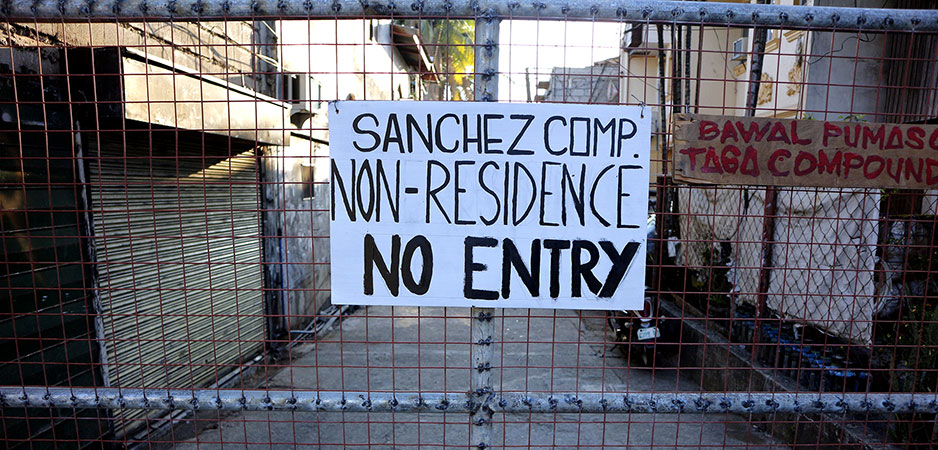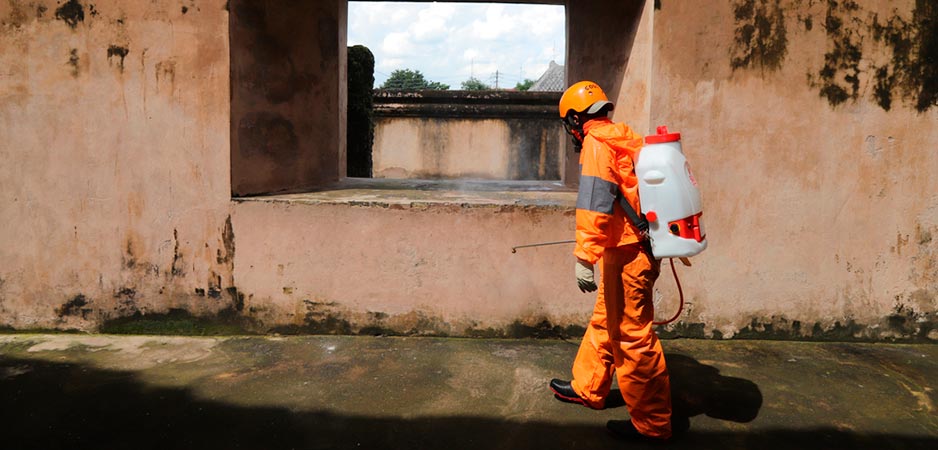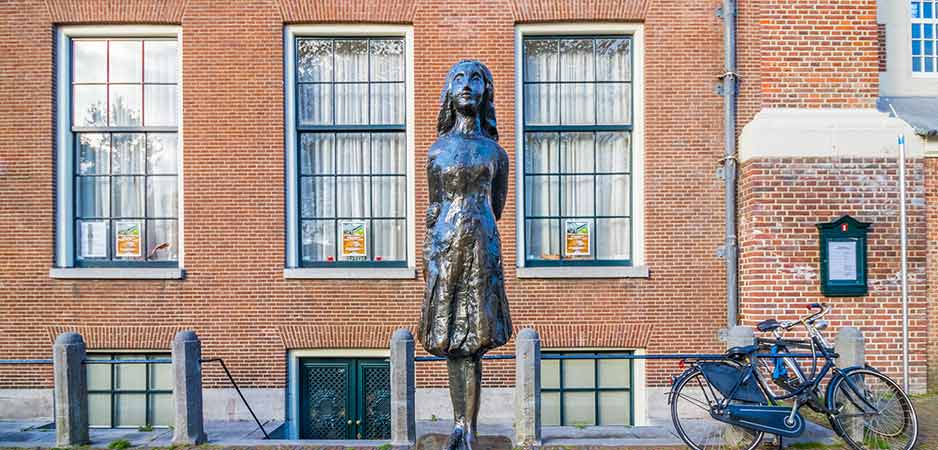The coronavirus pandemic has forced higher education institutions across the world to either suspend teaching or diametrically change the way they operate. According to the International Association of Universities, current closures impact 90% of the world’s student population. However, not only students are affected by those changes. They are a challenge for the whole academic community, teachers and learners alike. In fact, the changes pose a threat to the very existence of the academic community by drastically reducing opportunities for engagement and connectedness.
Considering the warnings that the second wave of the pandemic is unavoidable, it is likely that the number of affected students and scholars will remain high for a prolonged period of time. The question of whether it is possible to retain social interactions in academia under the current conditions leads to a broader issue: Why is the social and communal aspect of study and research so important? Are there any alternative models?
Staying Engaged
The University of Cambridge has already announced its plans to continue online teaching through the 2021 summer term. From the economic and health perspectives, the decision appears to be the most sensible one. It allows the university to concentrate on one course of action instead of investing resources into preparing for hypothetical scenarios. It also makes the university less dependent on further developments, whatever these may be. Last, but not least, it prioritizes, or so it may seem, the safety and well-being of both students and teachers.
It is easy to imagine that Cambridge, one of the most renowned universities in the world, will set an example. If its officials deem distant learning appropriate to the situation and up to its own standards, many others will follow suit. But is it possible to preserve the previous quality of work without a traditional classroom setting? Or, as some ask, is it possible to transfer vigorous thought processes digitally? The answer Marija Stanisavljevic and Peter Tremp give in the Neue Zürcher Zeitung is no, and this has profound consequences for the academic community.
Video calls remain an unnatural and foreign setting for social interactions. This should not pose a threat to the integrity of scholarly life — were it a life of solitude and seclusion. But it is, in fact, a life that thrives on engagement and dialogue. Universities are social institutions. It is, therefore, unsettling to see with what ease the move from the real to the virtual is made. If face-to-face tutorials had been thought of as truly valuable, we would certainly see more efforts to restore the practice within the current limitations as we experience parallel efforts to “defrost” the economy. If measures are long term, then certainly something else than fostering a community of reflexive, engaged learners is a priority.
So how can we recreate the sense of intellectual engagement via Zoom? How can we initiate and maintain friendships when there is no common time and space to meet? How can we uphold a sense of belonging to a group or an institution with no physical connections available? And how do we stay interested, critical human beings when reduced to thumbnail videos in dreary and repetitive meetings?
Boredom and routine are part of classroom life as well — there is no reason to idealize face-to-face instruction just because it requires physical presence. Under any circumstances, it is the common responsibility of both students and teachers to make the educational experience engaging and satisfying. It seems, however, that it is precisely this responsibility that they relinquish in the face of prolonged absence of personal contacts.
When there is no physical alternative to online teaching, the priority should be to facilitate an informed exchange of ideas and experiences rather than to pass on as much information as possible. Undoubtedly, the present situation is extraordinary, but it could also become a point of departure for extraordinary learning. Engaging in a cross-disciplinary dialogue could benefit the whole community. Concentrating on people rather than on curricula could result in more motivation for both teachers and students. Finally, taking time to study things one is genuinely interested in could open ways for new and exciting perspectives on scholarship itself.
Academic Tourism
A similar academic setting that involves presentation, discussion and socializing is well known from scientific conferences. These events aim to bring together scholars from different disciplines, institutions and countries. Ideally, this should strengthen the sense of community and create new opportunities for cooperation. Nevertheless, where classroom training may satisfy those needs, conferences often fail. Comparing these two modes of knowledge distribution and promotion may help us to grasp the importance of social interaction in academia and assess to which extent they foster reciprocity.
At big international events, fees and accommodation and travel costs may amount to a hefty sum. Some institutions can’t afford to cover these expenses for their researchers on a regular basis. Then, since the language of most international conferences is English, non-native speakers are disadvantaged. On average, they need more time to write and proofread their papers and experience more difficulties while delivering them. Some also might find it harder to enjoy casual talk with colleagues afterward. Again, this concerns first and foremost smaller and less wealthy research centers and further perpetuates their relative invisibility.
The environmental costs of multinational conferences are also considerable. Academic tourism often involves long-distance flights for short stays. Even if it’s marginal in comparison with conventional tourism, it is so deeply interwoven in the academic routine that it requires critical consideration. Fostering a community of engaged scholars is the precondition for having engaged, socially responsible science, but a part of this responsibility is to carefully balance the costs and benefits of international academic events.
It is true that an international conference organized exclusively online would suffer from the same inconveniences as online teaching. It would lack social context, impede the processing of and reactions to information and diminish the chances of establishing collaborations. But at the same time, it would be more inclusive as a result of dramatically lower costs, and more eco-friendly. Studying is a long-term commitment that requires continuity, consistence and guidance. Academic conferences, on the other hand, are singular moments of a broader engagement. What seems essential for academic study is optional for academic gatherings.
What is, then, the lasting impact that the members of the academic community wish to make? Is it leaving behind a carbon footprint or the impact they have on our society by educating generations of engaged citizens capable of forming lasting, meaningful, critical bonds with and within the world?
Teaching and learning are transformative practices that require critical engagement with people and ideas. This is, to some extent, possible with online courses, but remote learning remains largely an individual undertaking. For students and young scholars who are just entering the academic community, it can be especially detrimental and daunting when their possibilities for engagement are constricted.
Hence, if online teaching does not leave much space for personal commitment, it is advisable that students and scholars turn to various forms of delicate activism. Reaching out to other members of the community, making plans for future research projects and collaborations, ensuring the well-being of co-learners and co-workers are by no means impeded by the pandemic — we just need to remember these simple but important practices. Fostering bonds with the local academic community is not only crucial for its future but also more feasible than efforts to establish a global community of scholars through a series of short-lived conference contacts.
The views expressed in this article are the author’s own and do not necessarily reflect Fair Observer’s editorial policy.
For more than 10 years, Fair Observer has been free, fair and independent. No billionaire owns us, no advertisers control us. We are a reader-supported nonprofit. Unlike many other publications, we keep our content free for readers regardless of where they live or whether they can afford to pay. We have no paywalls and no ads.
In the post-truth era of fake news, echo chambers and filter bubbles, we publish a plurality of perspectives from around the world. Anyone can publish with us, but everyone goes through a rigorous editorial process. So, you get fact-checked, well-reasoned content instead of noise.
We publish 2,500+ voices from 90+ countries. We also conduct education and training programs
on subjects ranging from digital media and journalism to writing and critical thinking. This
doesn’t come cheap. Servers, editors, trainers and web developers cost
money.
Please consider supporting us on a regular basis as a recurring donor or a
sustaining member.
Support Fair Observer
We rely on your support for our independence, diversity and quality.
Will you support FO’s journalism?
We rely on your support for our independence, diversity and quality.






























